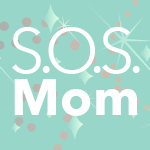The arrival of baby causes a big change both emotionally and in your daily life. Beware of the baby blues and postnatal depression! The following will provide you with all the information you need.
The birth of a child creates many changes in a woman’s life. A new mother’s relationship with her partner will change from being primarily a romantic bond to a working partnership focused on housework and childcare. She may give up paid work or no longer have time for her own activities, which can make her feel bored, isolated or resentful.
The baby blues
The first emotions that you will probably experience after giving birth are elation and an all-encompassing love for your newborn baby. Soon after, your elation may start to dissipate and lead into other emotions such as the “baby blues” and possibly even depression. This is supposed to be one of the happiest times of your life, and yet you may feel miserable. You may also feel irritable, indecisive, anxious, and prone to sudden mood swings. You may experience emotional instability and negative feelings towards your newborn baby. You are not alone. In fact, about 80% of women feel this way. Symptoms of the baby blues tend to peak on the fifth day after childbirth, and gradually decrease from there. Full recovery usually occurs within two weeks.
Causes of the baby blues
Sometimes sadness and mood swings after childbirth are due to hormone levels, which drop rapidly after childbirth. However, there are a number of other reasons why you might feel “blue” after giving birth:
Postpartum depression
Some women are unprepared for the changes that having a baby brings, and for the amount and type of work that is involved in caring for a young child. Women may feel angry with the baby and ashamed that they are not living up to societal myths about the ideal mother - feelings that can spiral downward into postpartum depression (PPD). Postpartum depression usually occurs three to four weeks after delivery. The arrival of baby causes a big change both emotionally and in your daily life in addition to the many existing factors that contribute to the development of this depressive state.
Some women may experience a depression that is so pronounced and continuous that it disrupts their normal functioning. This is called major depression or postpartum depression, and it affects 12% to 28% of women in the postpartum period. If you had major depression during pregnancy, you are more likely to have it postpartum. New fathers can also experience depression after the birth of a baby. Postpartum depression can arise within a few days or weeks of childbirth, or it may first appear after several months. It can last for months or up to a year after childbirth if left untreated. Early diagnosis and treatment is very important to the well-being of the mother or father.
Symptoms of postpartum depression
Sometimes sadness and mood swings after childbirth are due to hormone levels, which drop rapidly after childbirth. However, there are a number of other reasons why you might feel “blue” after giving birth:
- You might, like many new mothers, feel overwhelmed at the thought of being responsible for the care of a newborn baby. If you have other children, you may feel doubly overwhelmed.
- You may be exhausted from the demands of your new baby and lack of sleep, especially if you are not receiving extra help from your partner or someone else.
- It may be difficult to shift from being the star of the show to the one behind the scenes. Everyone now focuses on your newborn baby, whereas before you gave birth, they focused on you.
- You may be disappointed that your newborn baby is not as cute or as responsive as you expected him to be.
- You might feel frustrated if you were not able to experience the ideal type of birth that you had planned for.
- You may miss your old, carefree, perhaps career-oriented self.
- You could be concerned about your looks, and feel that you are fat and unattractive.
How to manage the baby blues
If you experience the baby blues after giving birth, there are a number of things that you can do to help yourself:
If you experience the baby blues after giving birth, there are a number of things that you can do to help yourself:
- Rest as much as you can by taking short naps during the day when your baby sleeps. Try to sleep regularly. If you need tips on how to get more sleep, speak with your health care provider.
- Accept help from others when they offer and don’t worry about things that can wait, such as housework.
- Eat a proper diet with plenty of fruits and vegetables.
- Establish a gentle exercise program when you are ready, and take lots of walks outdoors with your baby.
- Try not to worry too much about your newborn baby or your recovery.
- Join a new mothers' group if you feel like sharing your experiences with others who have been through a similar experience.
- Limit visitors if they make you feel tired or depressed.
- Talk about your feelings to your partner or someone else that you trust. Don’t bottle them up inside.
- If your feelings last for more than a couple of weeks or seem overwhelming, seek advice from your health care provider or a counsellor.
Postpartum depression
Some women may experience a depression that is so pronounced and continuous that it disrupts their normal functioning. This is called major depression or postpartum depression, and it affects 12% to 28% of women in the postpartum period. If you had major depression during pregnancy, you are more likely to have it postpartum. New fathers can also experience depression after the birth of a baby. Postpartum depression can arise within a few days or weeks of childbirth, or it may first appear after several months. It can last for months or up to a year after childbirth if left untreated. Early diagnosis and treatment is very important to the well-being of the mother or father.
Symptoms of postpartum depression
In addition to feeling sad and blue, a woman with postpartum depression would experience some of the following symptoms:
A diagnosis of postpartum depression can be made if the symptoms are present every day for more than two weeks, if the symptoms interfere with a woman’s life in a major way, and if the symptoms are so severe that a woman feels there is no hope in sight.
Sometimes the symptoms of postpartum depression can be accompanied by another condition called anxiety disorder. Symptoms of anxiety disorder, also called panic disorder, include shortness of breath, excessive sweating, and a pounding heartbeat, occurring a few times a day. Panic attacks can start without any apparent reason, or they can be triggered by extreme stress.
Causes of postpartum depression
There are many factors that can contribute to postpartum depression. Hormonal, genetic, psychological, and social factors all come into play. As described in the baby blues section, hormone levels drop rapidly after childbirth, and this can make a woman’s mood fluctuate. When a woman experiences this in combination with intense emotional stress, it can send her into a state of depression. Depression also tends to run in families, and therefore, if a woman has a close relative who had depression or postpartum depression, the chances are higher that she also will develop the condition.
New mothers can feel overwhelmed with the sudden demands of their newborn baby, especially if the baby has colic. Trying to soothe a constantly crying infant can be an onerous task, verging on nightmarish for some women. This extra stress can lead to postpartum depression.
Loss of lifestyle is a major contributor to depression. Some new mothers find it especially challenging to give up their freedom or possibly a career for the responsibilities of caring for their newborn baby. They may feel angry and resentful. These feelings may be even more overwhelming if the woman’s partner has left the relationship, leaving her to care for her newborn baby alone.
There are other factors that can contribute to postpartum depression, including an unsupportive partner, a poor relationship, low family income, and a weak social network.
Often, depression in fathers is overlooked because society's focus is not on the father: the baby comes first and the mother second. Depression in fathers can arise from feeling isolated and unloved. Changing roles and financial difficulties can also contribute to depression. Again, early diagnosis and treatment are very important.
Treatment of postpartum depression
If you experience any of the symptoms of postpartum depression, with or without anxiety, see your doctor right away. This is especially important if you are feeling suicidal or that you might harm your baby. When you are feeling profoundly disturbed, your first priority must be yourself. Take care of yourself first, and then you will be able to take care of your newborn baby.
There are several approaches to the treatment of postpartum depression. These include medication, psychotherapy, and education of the rest of the family. Medications such as sertraline and paroxetine have been found to be safe during breastfeeding, although paroxetine is not safe for use during pregnancy. If you decide to see a counsellor about your postpartum depression, the counsellor may wish to see both you and your partner. The counsellor may make arrangements to give you a break from caring for your newborn baby and your other children. Nursing routines can be discussed, as well as tips on how your partner can help with feedings at night. Support from your partner and other family members is essential to your recovery.
Don't forget, if ever in doubt about anything or in need of any kind of help, don't hesitate to seek a helping hand from anyone you can trust or rely on. Whether it be a health care professional, a family member, your spouse, a friend, coworker, or anyone who can provide the help needed, it is crucial to open up and talk about it. They will provide you with any tool, advice, support and help necessary to get through it. Because there is a way out...
- feeling out of control
- unpredictable, uncontrolled tearfulness and spontaneous crying spells that occur without cause
- feelings of sadness, melancholy, weary anger, guilt, apathy, or general despair
- an overwhelming sense of worthlessness
- forgetfulness, difficulty making decisions, or inability to concentrate
- sleep disturbances, such as sleeping excessively and still feeling tired, or having chronic insomnia at night with exhaustion during the day
- a change in eating habits, such as lack of appetite, aversion to the sight and smell of food, or excessive appetite
- a total loss of sexual energy
- sometimes: a suicidal feeling
- withdrawal from her baby, partner, friends, and family
- a feeling that she might harm herself or her baby
A diagnosis of postpartum depression can be made if the symptoms are present every day for more than two weeks, if the symptoms interfere with a woman’s life in a major way, and if the symptoms are so severe that a woman feels there is no hope in sight.
Sometimes the symptoms of postpartum depression can be accompanied by another condition called anxiety disorder. Symptoms of anxiety disorder, also called panic disorder, include shortness of breath, excessive sweating, and a pounding heartbeat, occurring a few times a day. Panic attacks can start without any apparent reason, or they can be triggered by extreme stress.
Causes of postpartum depression
There are many factors that can contribute to postpartum depression. Hormonal, genetic, psychological, and social factors all come into play. As described in the baby blues section, hormone levels drop rapidly after childbirth, and this can make a woman’s mood fluctuate. When a woman experiences this in combination with intense emotional stress, it can send her into a state of depression. Depression also tends to run in families, and therefore, if a woman has a close relative who had depression or postpartum depression, the chances are higher that she also will develop the condition.
New mothers can feel overwhelmed with the sudden demands of their newborn baby, especially if the baby has colic. Trying to soothe a constantly crying infant can be an onerous task, verging on nightmarish for some women. This extra stress can lead to postpartum depression.
Loss of lifestyle is a major contributor to depression. Some new mothers find it especially challenging to give up their freedom or possibly a career for the responsibilities of caring for their newborn baby. They may feel angry and resentful. These feelings may be even more overwhelming if the woman’s partner has left the relationship, leaving her to care for her newborn baby alone.
There are other factors that can contribute to postpartum depression, including an unsupportive partner, a poor relationship, low family income, and a weak social network.
Often, depression in fathers is overlooked because society's focus is not on the father: the baby comes first and the mother second. Depression in fathers can arise from feeling isolated and unloved. Changing roles and financial difficulties can also contribute to depression. Again, early diagnosis and treatment are very important.
Treatment of postpartum depression
If you experience any of the symptoms of postpartum depression, with or without anxiety, see your doctor right away. This is especially important if you are feeling suicidal or that you might harm your baby. When you are feeling profoundly disturbed, your first priority must be yourself. Take care of yourself first, and then you will be able to take care of your newborn baby.
There are several approaches to the treatment of postpartum depression. These include medication, psychotherapy, and education of the rest of the family. Medications such as sertraline and paroxetine have been found to be safe during breastfeeding, although paroxetine is not safe for use during pregnancy. If you decide to see a counsellor about your postpartum depression, the counsellor may wish to see both you and your partner. The counsellor may make arrangements to give you a break from caring for your newborn baby and your other children. Nursing routines can be discussed, as well as tips on how your partner can help with feedings at night. Support from your partner and other family members is essential to your recovery.
Don't forget, if ever in doubt about anything or in need of any kind of help, don't hesitate to seek a helping hand from anyone you can trust or rely on. Whether it be a health care professional, a family member, your spouse, a friend, coworker, or anyone who can provide the help needed, it is crucial to open up and talk about it. They will provide you with any tool, advice, support and help necessary to get through it. Because there is a way out...
































0 Fabulous Comments:
Post a Comment